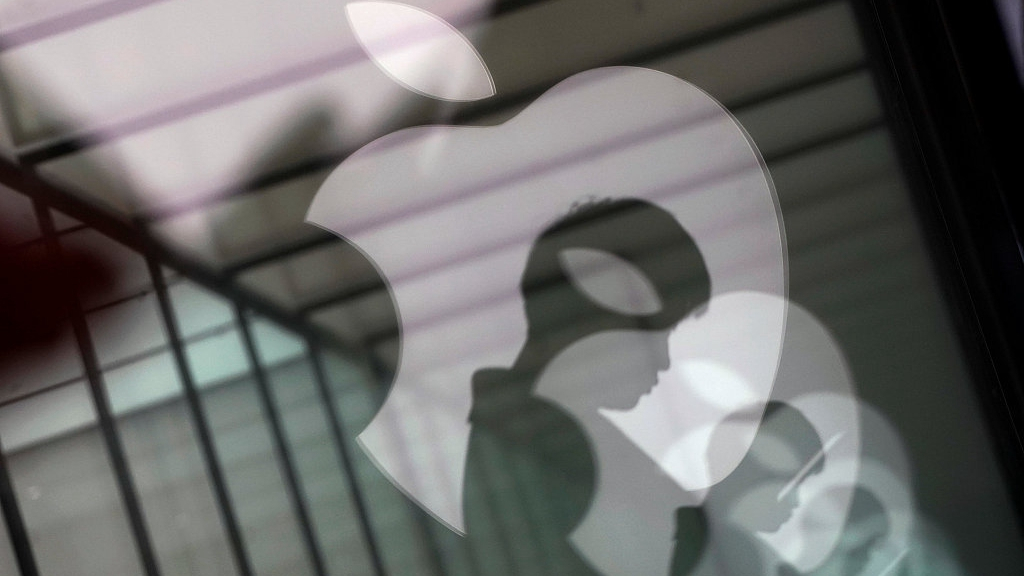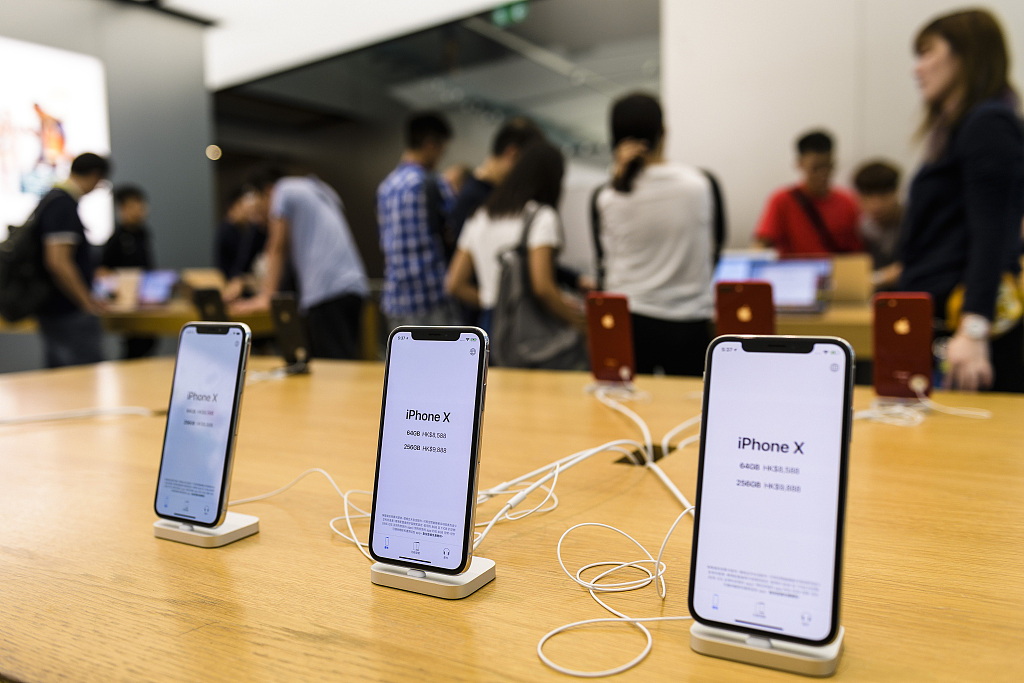
Apple company logos are reflected on the glass window outside an Apple store in Shanghai, China, January 3, 2019. /VCG Photo
Apple company logos are reflected on the glass window outside an Apple store in Shanghai, China, January 3, 2019. /VCG Photo
Editor's Note: Tom Fowdy is a British political and international relations analyst and a graduate of Durham and Oxford universities. He writes on topics pertaining to China, the DPRK, Britain and the United States. The article reflects the author's opinions and not necessarily the views of CGTN.
On Tuesday, Apple became the latest company to be subject to American fury over allegations of "self-censorship" following news that it had removed an application called "Hong Kong map tracker" from its App Store. The application in question was being used by activists to track live movements of police forces in the city, which was then reportedly being used to ambush law enforcement. Inevitably, the removal of the app has been met with accusations once again that American companies are "submitting" to China and engaging in the "oppression of Hong Kong."
I don't think that this is a fair depiction. Calling it "self-censorship" does not give fair consideration to how businesses approach the law based on the territory they're in. In removing "Hong Kong map tracker," it is not fair to claim that Apple is "choosing a side" in the Hong Kong protests; instead it is performing reasonable due diligence and risk assessment in ensuring that its own products are not in contradiction to local laws, which is standard business worldwide.
Businesses care about the law because they do not want to be subject to liabilities that could disrupt or bring an end to their work. This is a worldwide rule. Compliance with law in general does not mean that such a business "agrees" with the motivation behind that given law in principle, but rather it has little choice in that position. Businesses are not about activism; they never were and never will be.

An Apple store in Hong Kong's Kowloon District, August 3, 2018. /VCG Photo
An Apple store in Hong Kong's Kowloon District, August 3, 2018. /VCG Photo
For example, when the United States blacklisted Huawei, American companies were in general unhappy about this decision. Nevertheless, they had a legal obligation to follow through with it. That does not mean they agreed with U.S. allegations nor were they "taking a stand against Huawei." Businesses around the world will always comply to local laws and government demands, irrespective of the views of the people whom it consists of. It goes against the mantra of corporate responsibility to do so.
In this case, Apple's decision to remove an application from its store, which is being used as a tool in conflicts between Hong Kong protesters and police, is an act of corporate responsibility according to local laws. The Hong Kong issue has been constantly clouded by binary assumptions that everything is at the fault of an "oppressive Beijing" and anyone who challenges this narrative is somehow supporting it, and not fulfilling their duty of backing the "righteous protesters." Because China is blamed in the narrative, it is automatically assumed that local laws are illegitimate and the protesters are right to ignore them. Thus the rhetoric is clouded by a belief that one is either "with us, or against us."
This view is flawed and misses the bigger picture. Not only is Hong Kong one of the world's leading hubs of the rule of law, but in no country's jurisdiction would Apple host apps which were being used to break local laws and challenge law enforcement. This decision is not in any way political, and it is unfair to accuse it of being such. In the United States, this would never be tolerated, nor would it be anywhere else in the world.
Apple as a company has a clear rationale that it should allow itself to be involved in promoting or facilitating any kind of violence, either directly or indirectly. This is irrespective of what its individual employees believe, because that is how companies work.
In this case, anger over the so called "self-censorship" is getting out of control. Americans may feel strongly about their values, but it has overreached to a point where it is attacking companies for things which do not actually involve America at all.
If we are to make sense of this, we must understand that corporations and businesses will always assign priority to complying with local laws and regulations, which will never change in any context. Pro-protest bias is essentially superseding a balanced view of events on the ground and attempting to obligate everyone into following their narrative, without actually taking into account the legal implications of it.
Apple didn't take a side here, and it doesn't have to.
(If you want to contribute and have specific expertise, please contact us at opinions@cgtn.com.)